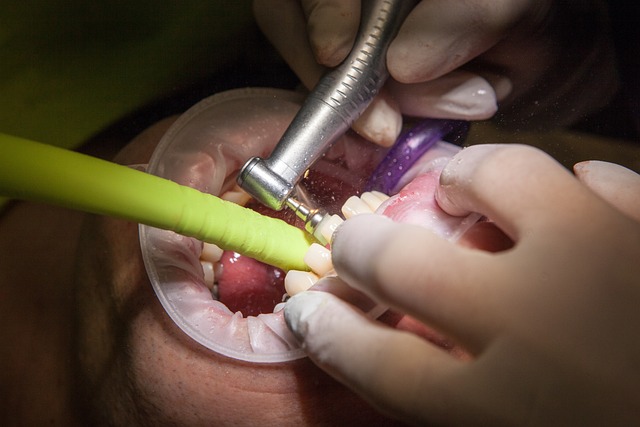Dentists require specific dentist liability coverage to mitigate risks like malpractice, property damage, and personal injuries. This includes professional liability insurance for diagnostic errors, general liability for practice premises, and tailored policies based on practice type, specialization, and demographics. Thoroughly compare insurance options focusing on scope of coverage, deductibles, limits, and exclusions. Customized dentist liability coverage enhances risk management, offers claim handling support, and ensures financial security against unexpected claims.
For dentists, managing risk is paramount. That’s where DDS-focused liability insurance steps in, providing essential protection against potential malpractice claims and lawsuits. This comprehensive guide explores the fundamentals of dental liability insurance, uncovering the various coverage options available to suit diverse practice needs. We’ll delve into risk assessment, policy comparison, customization strategies, and the invaluable claim handling and legal support benefits that underpin dentist security and peace of mind.
- Understanding DDS Liability Insurance Basics
- Types of Coverage for Dental Practices
- Assessing Risk Factors for Dentists
- Comparing Policy Options and Pricing
- Customizing Dental Practice Protection
- Claim Handling and Legal Support Benefits
Understanding DDS Liability Insurance Basics

Dentists, like any healthcare professionals, face unique risks and responsibilities that require specific insurance coverage. DDS (Dental Disability and Liability) liability insurance is designed to protect dentists and their practices from potential financial losses resulting from claims of negligence or malpractice. This type of insurance provides a safety net by covering legal expenses, settlement costs, and damages awarded in suits related to dental treatment.
The dentist liability coverage typically includes errors and omissions (E&O) insurance, which safeguards against claims arising from diagnostic mistakes, treatment errors, or failures to obtain informed consent. It also may encompass professional liability insurance, which covers a broader range of incidents, such as injuries caused by negligent care, property damage, or personal injuries resulting from a dentist’s actions. Understanding these fundamentals is essential for dentists aiming to mitigate risks and ensure the financial security of their practices.
Types of Coverage for Dental Practices

Dental practices, much like any other business, face unique risks and challenges that require specific insurance coverage. DDS-focused liability insurance is designed to protect dentists and their practices from potential financial losses due to professional negligence or medical malpractice. The scope of this coverage can vary but typically includes several key components.
One of the primary types of dentist liability coverage is professional liability insurance, also known as malpractice insurance. This protects against claims of negligence that arise from dental treatments provided to patients. It covers legal fees and settlements if a patient alleges injury due to incorrect diagnoses, improper procedures, or other errors in dental care. Additionally, general liability insurance offers protection against non-dental related claims, such as property damage or personal injury on the practice premises, ensuring the business is covered should any accidents occur during regular operations.
Assessing Risk Factors for Dentists

Dentists, like any healthcare professionals, face unique risks that require tailored insurance solutions. Assessing these risk factors is a critical step in obtaining adequate dental liability coverage. Beyond typical patient safety concerns, dentists can be exposed to various legal issues. These include negligence claims related to dental procedures, equipment malfunctions, and even professional judgment errors.
When evaluating risk, consider the type of practice, specialist areas, and patient demographics. For instance, a general dentist treating a wide range of patients may face different risks compared to a specialist focusing on complex oral surgeries. Understanding these variables helps insurance providers customize policies that align with specific needs, ensuring dentists are protected against potential liabilities.
Comparing Policy Options and Pricing

When comparing DDS-focused liability insurance options, it’s crucial to consider the specific types of coverage offered and how they align with your dental practice’s needs. Look beyond the base policy price; assess what deductibles, limits, and exclusions are included in each option. Dentist liability coverage should protect against a range of potential risks, from malpractice suits to property damage. Comprehensive analysis allows you to identify the best value for your investment, ensuring adequate protection without overspending on unnecessary features.
Customizing Dental Practice Protection

Many dental practices seek tailored solutions for their unique needs, and this is where customizing dental practice protection comes into play. Dentist liability coverage isn’t a one-size-fits-all proposition; it should reflect the specific risks and responsibilities of each practice. For instance, a specialist’s requirements may differ significantly from a general practitioner’s. Customization allows insurers to offer specialized policies that account for factors like the types of procedures performed, patient demographics, and even the practice’s location.
By delving into these details, dental practices can secure comprehensive dentist liability coverage that addresses their specific concerns. This could include enhanced protection for complex procedures, additional liability for certain treatments, or tailored coverage for managing diverse patient populations. Customization ensures that the insurance policy becomes an integral part of the practice’s risk management strategy, providing peace of mind and financial security in the event of unexpected claims.
Claim Handling and Legal Support Benefits

Dentist liability coverage extends beyond simply compensating for accidental harm. Many policies include claim handling and legal support benefits, which can be invaluable to dentists facing allegations or lawsuits. When a dental malpractice claim is made, these benefits ensure that the insured dentist has access to expert legal counsel specializing in dental law. This specialized knowledge helps navigate complex legal procedures, negotiate settlements, or prepare for court appearances effectively.
Furthermore, these policies often provide resources for managing claims efficiently. This includes assistance with documentation, gathering evidence, and understanding policy terms. By leveraging claim handling and legal support benefits, dentists can focus on delivering quality care while leaving the complexities of potential liabilities to professionals who understand the unique challenges within the dental industry.
